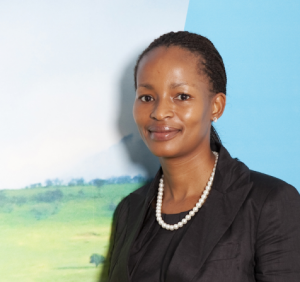
Unfortunately, her friends’ knowledge about these topics is rather questionable. Mboni, who has not yet started menstruating, is under the impression that girls only get their period when they are dating boys. She therefore, tries not to talk to boys too often, as she does not want to start menstruating.
Mboni knows that if she does, she won’t be able to attend school for a few days a month, as her mother, an unemployed single parent, cannot afford to buy sanitary towels for her.
Mboni’s circumstances are not unique. One of the factors that has been identified as a primary cause of school absenteeism in girls is menstruation. Research has shown that girls in the developing world can be absent from school for four days a month due to their periods.
This is supported by a 2005 World Bank report that found that menstruation may seriously affect girls’ attendance, attention and achievement in school in both rural and urban areas.
Because girls can’t afford adequate sanitary protection and do not always understand the changes their bodies are going through, they can miss up to two weeks of learning for every school term.
Therefore, during the course of their five-year high school career, girls from developing countries can lose up to 30 weeks of school out of a total of 180 because of menstruation, leading them to fail or drop out altogether.
It should therefore come as no surprise that boys in Africa and South Asia remain 1.55 times more likely to complete secondary education than girls (World Bank’s 2012 World Development Report on Gender Equality and Development).
Once they drop out of school, girls are far less likely to find employment, and their low self-esteem makes them more susceptible to gender violence, sexual abuse, unsafe sexual practices, and pregnancy.
To address this worrying issue of the high school dropout rates in girls, P&G initiated the Always Keeping Girls in School Programme in 2006, in order to regularly distribute sanitary towels to girls from underprivileged areas around the world.
Aware of the fact that the mere donation of feminine hygiene products was not going to adequately resolve this problem, P&G ensured that a large part of the Always Keeping Girls in School Programme also focuses on empowering these young girls.
Therefore, young female mentors meet weekly with the girls and educate them about health issues, particularly puberty hygiene, how to take care of themselves, and their rights.
Building the self-esteem of these teenagers is also a key priority of this programme, as the uncertainty that comes with puberty can erode their confidence. We believe that providing girls with support, accurate knowledge and confidence empowers them to make better decisions, now and for their future.
As a conservative estimate, every adolescent that the Always Keeping Girls in School Programme reaches will impact on an additional five girls and women as the female learners grow in confidence and become eager to share their knowledge. It is important that women older than 20 are also educated, so that they can pass on the information to their daughters and have a better understanding of why education is so important for girls.
In South Africa alone, P&G reached over 300,000 school girls last year through the Always Keeping Girls in School Programme. Girls like Mboni, who is no longer fearful of getting her period and now knows that her menstruation cycle is not dependent on her interaction with boys.

“When my little sisters are older, I will give them the correct information about getting their period,” she says.
Mboni’s increased knowledge about her body and her rights has also inspired confidence in this young girl. “I want to be a teacher and be the first person in my family to go to university.”
By Khululiwe Mabaso, CSI Associate Director for Sub-Saharan Africa at Procter & Gamble (P&G)
